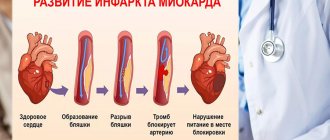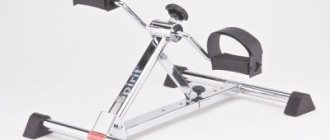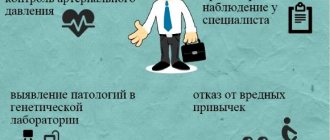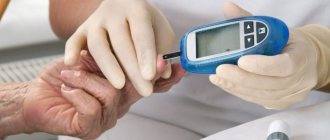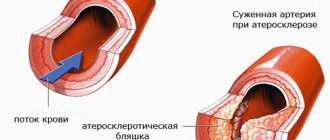Review of drugs for the heart and blood vessels
| Nomination | place | Name of product | price |
| drugs for the prevention of blood clots | 1 | Acetylsalicylic acid | 18 ₽ |
| 2 | Clopidogrel | 342 ₽ | |
| 3 | Warfarin | 48 ₽ | |
| 4 | Xarelto | 1 296 ₽ | |
| drugs for the treatment of hypertension | 1 | Perindopril | 84 ₽ |
| 2 | Losartan | 44 ₽ | |
| 3 | Carvedilol | 64 ₽ | |
| drugs for the treatment of ischemic heart disease | 1 | Nitroglycerine | 119 ₽ |
| 2 | Rosuvastatin | 156 ₽ | |
| means for improving heart muscle metabolism | 1 | Trimetazidine | 43 ₽ |
| 2 | Meldonium | 243 ₽ | |
| Modern dietary supplements | 1 | Omega-3 1000 mg Evalar | 846 ₽ |
| 2 | Cardio Capilar with coenzyme Q10 | 306 ₽ | |
| 3 | Doppelhertz VIP Cardio System 3 | 1 286 ₽ | |
| Prevention Tips |
Restoration of the heart muscle in cardiovascular pathologies
With the development of any disease, damage to the heart muscle occurs to a certain extent, which may later manifest as heart failure. Many people wonder how to restore the heart and how feasible it is.
It is important to visit a cardiologist 3-4 times a year and monitor the condition of the organ using EchoCG, ECG, and tests.
Take therapy in accordance with the specific disease. A damaged heart cannot be magically restored. In irreversible cases, surgery or organ transplantation is indicated. It is best to follow preventive measures and treat the disease in a timely manner.
Review of drugs for the prevention of blood clots
The ability of platelets to “stick together”, forming blood clots, is a vital necessity for any living organism; without it, we would die from bleeding due to the slightest scratch. But this same ability causes a heart attack or stroke. When the covering of an atherosclerotic plaque is destroyed, the body perceives this section of the vascular wall as damaged and forms a blood clot over it. The lumen of the vessel sharply narrows, which disrupts normal blood flow and leads to necrosis of the area that does not receive enough oxygen.
That is why medications that reduce the ability of platelets to stick together - antiplatelet agents - are recommended for almost all patients with coronary heart disease, as well as those suffering from hypertension (this condition is a serious risk factor for heart attacks and strokes) and other risk factors for cardiovascular accidents. Moreover, if previously it was believed that in case of a heart attack you should first take nitroglycerin, now it is first recommended to take a tablet of acetylsalicylic acid, ordinary aspirin, which will slow down the formation of a blood clot.
Other conditions where anti-clotting agents are vital are the presence of prosthetic heart valves or vascular wall (shunts). Any foreign body provokes the formation of a blood clot. If it occurs in a place with active blood flow (heart valve), then after some time it breaks off and moves through the body with the blood flow until it blocks some small vessel, causing tissue necrosis. Having arisen at the shunt site, a thrombus, as a rule, remains in place and grows until it completely blocks the vessel, provoking a second heart attack.
The third most common reason for prescribing drugs that reduce coagulation is arrhythmias with paroxysms of atrial fibrillation. In this case, a section of the heart periodically stops contracting normally and synchronously, and begins to “flutter.” Blood stagnates in the atrium, which causes a blood clot to form, which subsequently enters the bloodstream - according to statistics, with atrial fibrillation, the likelihood of a stroke increases 17 times. To prevent this from happening, doctors also recommend anticoagulants - drugs that reduce clotting.
Most of the drugs described in this section of the rating can be fatal in case of overdose, so they should be prescribed by a doctor, and during use it is periodically necessary to check the condition of the coagulation system and, if necessary, adjust the dose of the drug. Therefore, we urge our readers not to try to treat themselves under any circumstances.
Acetylsalicylic acid
Popularity rating*: 4.9
Trade names: Aspirin Cardio, Thrombo-Ass, Cardiomagnyl, Acecardol, CardiASK.
In small dosages from 50 to 300 mg, this substance inhibits the “gluing” of red blood cells - the first stage of blood clot formation, and it is the blood clots that form on top of the cholesterol plaque that most often cause an attack of coronary heart disease. Therefore, acetylsalicylic acid is recommended both for the prevention of angina, heart attack, stroke, and for existing coronary heart disease to prevent complications.
Acetylsalicylic acid can be used for prevention by people over 40 years of age who have risk factors for cardiovascular diseases: obesity, diabetes mellitus, elevated plasma cholesterol levels, elevated triglyceride levels, smoking, arterial hypertension.
As a rule, to prevent cardiovascular problems in people with risk factors, a minimum dose of 50-75 mg is recommended (depending on the specific brand name). If coronary heart disease has already been diagnosed, 100–150 mg of acetylsalicylic acid per day is prescribed; to prevent a recurrent heart attack, the dosage can be increased to 300 mg (recommended by the doctor). The course of use can last for years and even become lifelong: since the lifespan of a platelet is only 10 days, drugs that change their properties must be constantly used.
Strengthening the heart muscle with folk remedies
Treatment with folk remedies takes a special place in strengthening the myocardium. Before using them, you need to consult a cardiologist.
To calm the nervous system and restore normal heart rhythm, you can prepare the following decoctions and tinctures:
Take: chamomile and lily of the valley flowers (5 parts), fennel and mint seeds (10 parts), valerian root (15 parts). All components are poured with water and boiled for 10 minutes over low heat. Leave for several hours, cool and filter. Take half a cup 2-3 times a day.- Take: 10 ml of tincture of lily of the valley and valerian, 5 ml of belladonna, 0.25 grams of menthol, 4 grams of sodium bromide and 30 ml of water. Mix the components completely, take 20 ml per day.
If a person has a tendency to increase blood pressure, then it is recommended to add 1 drop of mint liqueur to a dessert spoon of low-fat milk. Take before breakfast and dinner. After 15 days, you can add two drops of mint liqueur.
What drugs are effective in strengthening the heart?
In modern medical practice, drugs to strengthen the heart are widely used. Many people suffer from cardiovascular diseases, regardless of age. There are many reasons for health problems. Lack of physical training, poor nutrition from early childhood, and poor environment significantly worsen the functioning of both the entire body and individual organs. People with a hereditary predisposition, as well as those who have never exercised, are at risk. Lack of training does not allow the heart muscle to develop, and with low loads it greatly overloads the organ, which increases the risk of severe attacks. 90% of elderly patients have weak heart muscle.
The need to prevent cardiovascular diseases
Cardiovascular diseases are a very common phenomenon in the world, affecting every third person. Diseases of this group are quite common and occupy leading positions in many countries. There are congenital diagnoses and their manifestation in our body, in fact, does not depend on us. But most diseases are acquired - here our influence is inevitable.
Based on this, many people wonder how to strengthen the heart and prevent the development of heart disease.
Causes of cardiovascular diseases
For the development of diseases, certain conditions, factors and a sufficiently long period of their influence are necessary. Therefore, it is necessary to constantly eliminate these factors and conditions. The World Health Organization has identified risk factors for the development of cardiovascular diseases.
Advice from cardiologists
When visiting a hospital at special stands or in a doctor’s office, you can hear or read the following advice from cardiologists:
- Normalization of body weight. Excess weight is a risk factor for many diseases, especially atherosclerosis, which in turn is one of the primary triggers of IHD and its various variations. Body mass index should be within normal limits.
- Moderate physical activity - exercise therapy, exercise, active lifestyle.
Compliance with the work and rest regime. A healthy, sound sleep of 7-8 hours is especially useful, preferably going to bed and waking up at the same time, and not overloading yourself with work/study.
- A balanced balanced diet should contain the correct ratio of proteins, fats, carbohydrates and the maximum amount of healthy foods and a minimum of harmful ones.
- Protection from harmful environmental influences and unnecessary psycho-emotional stress.
- Limit or stop taking harmful substances: alcohol, nicotine and drugs.
- If you experience complaints from the cardiovascular system (palpitations, chest pain, shortness of breath, pressing headache, dizziness, flashing spots before your eyes, etc.), immediately contact a cardiologist for help.
If you already have a history of CV pathology, it is necessary to regularly assess the dynamics of the condition with a doctor and follow all recommendations and prescriptions to prevent further progression of the disease.
All these tips are universal and help prevent the development of not only heart pathologies, but also damage to other organs and systems. A big plus is also the fact that all this can be easily applied at home - the rules are easy to follow and can easily become a good and useful habit. The main thing is regular compliance and motivation.
Methods for maintaining heart muscle function
For effective therapy, it is first necessary to determine the cause of the disease and direct treatment to eliminate it. To improve performance, you need to reconsider your lifestyle, determine a clear diet enriched with vitamins and potassium (components play an important role in maintaining the functioning of the organ). It is important to give up bad habits. In some cases, you cannot do without medications, but along with medications you should always follow some rules:
- Do not overload the body with heavy physical labor, especially if there are contraindications to this;
- It is recommended to regularly engage in physical therapy so that the heart can cope with increased work during active movements;
- Take daily walks in the fresh air, travel outside the city, where the air is saturated with oxygen, without harmful impurities;
- You should take up walking. Every evening, leave the house and walk several kilometers at a brisk pace;
- Avoid prolonged exposure to high temperatures (under the scorching sun, in baths, steam rooms). These actions can provoke the development of additional problems and even attacks;
- Smoking is strictly prohibited. Nicotine significantly constricts blood vessels, which impairs blood circulation in the system and reduces the access of oxygen and nutrients;
- Try to protect the patient as much as possible from stressful situations and emotional experiences.
A healthy lifestyle and adherence to the basic rules for maintaining heart function will improve your overall health and prevent strokes and heart attacks.
How to avoid stress?
A stressful state is a human reaction that is designed to protect against problems and prepare the body for an unusual situation. However, recently this protection has become excessive and unnecessary. Stress negatively affects the functioning of the heart. Therefore, you need to try to avoid them, not to take every problem in life to heart, especially if it can be solved. It is important to change your attitude towards troubles, do positive things, learn to relax and let go of all difficulties with ease.
Effective drugs
After a complete examination and clarification of the diagnosis, doctors prescribe pharmaceutical drugs to strengthen the heart. Before starting treatment, you should study possible side effects, and while taking it, you should monitor your body's reaction to new medications. The dose must strictly comply with the treatment regimen and prescribed dosage. Self-correction can lead to aggravation of the situation, causing an attack. Among the most effective pharmaceuticals are:
- "Riboxin" is prescribed for various pathologies of the cardiovascular system. The drug is very effective, helps strengthen the heart muscle due to the ability to deliver oxygen to the tissues, as well as nutrition. Prevents hypoxia, dilates blood vessels, which helps normalize blood pressure. Normalizes heart rate, improves metabolic processes, nourishes the heart. The cost of the drug is 34 – 144 rubles, in Ukraine you can buy from 16.55 UAH to 31.00 UAH;
- "Asparkam." The medication contains components necessary for the functioning of the heart - potassium and magnesium. Thanks to these substances, internal balance is restored and metabolic (electrolyte) processes in the organ itself are improved. Allows the restoration of round muscles. The drug significantly facilitates muscle function and eliminates arrhythmia. The price in pharmacies in Russia is 37 – 75 rubles, in points of Ukraine from 11.76 UAH;
- "CardioActiv" contains folic acid and B vitamins. Normalizes the rhythm of heart contractions, strengthens the heart muscle and the walls of blood vessels. Improves blood circulation, saturates the heart with nutrients and microelements. This drug is a vitamin for the heart. Cost 450 rubles, in Ukraine – 200 UAH;
- Rhodiola rosea extract. The best drug to strengthen the heart, especially indicated for those at risk of heart attack. The medicine is created on a natural basis, non-toxic. Before use, you should consult a cardiologist, as there are contraindications. Price from 27 rubles, from 20.04 UAH;
- hawthorn tincture. One of the safest drugs for maintaining and strengthening the heart. Has a sedative effect. The available product is available without a doctor’s prescription for 8 – 32 rubles, from 8.63 UAH.
Medicines to strengthen the heart are indicated for many patients. If you need to increase your performance and improve the general condition of the body, it is recommended to go to the clinic and get a prescription for vitamin complexes for the heart muscle.
Heart medications for the elderly, list of pills to strengthen the heart
Basic drugs for the cardiovascular system
Drugs for the treatment of cardiovascular diseases are very diverse in their mechanism of action and indications. So far, no single “universal” tablet has been synthesized to help the heart in any case. The list of heart and vascular diseases requiring treatment can be schematically presented as follows:
- heart and vascular defects (congenital and acquired);
- inflammatory diseases of the myocardium, endocardium and pericardium;
- arrhythmias;
- ischemic disease;
- hypertension and atherosclerosis;
- diseases of arteries and veins (thrombosis, embolism);
- neuroses of the heart;
- circulatory failure.
Functionally, the work of the cardiovascular system is associated with the regulatory influences of the cerebral cortex and endocrine glands, therefore drugs that act on nerve impulses and hormone synthesis are used in therapy.
All drugs used in cardiology can be divided according to their target action into:
- aimed at eliminating the causes of the disease;
- means that help regulate metabolic disorders during the recovery period;
- medications that provide vascular protection (angioprotectors).
What patients have a right to know
The principles of modern therapy require individual selection of the most suitable and effective drug. To do this, doctors should inquire about the evidence base for a specific drug. It indicates the results of clinical use in a fairly large group of patients, effectiveness in%, long-term examination indicators, comparative duration of treatment courses, possible identified side effects.
This is especially true for the treatment of older people, new drugs with promising advertising. Unfortunately, the pharmacy chain has accumulated a lot of “cardiovascular drugs” without sufficient clinical trials.
Therefore, it is not recommended to prescribe such drugs for treatment; results cannot be expected from them. Apparently overproduction is based more on the financial profits of companies, rather than on the desire for public health.
The list of such drugs is constantly updated and is available to doctors of any specialty. Patients may feel better because they convince themselves that they are.
Such drugs, for example, include: Cavinton and Vinpocetine (in the USA it is listed not as a medicine, but as a biological food additive; in Japan, sales in pharmacies have been discontinued), Actovegin, Cerebrolysin, Validol (a tablet for breath freshening).
This drug turned out to be “water” during clinical testing; no declared metabolic effect was obtained
How does the patient influence the effect of the medicine?
When using cardiac medications, the patient must strictly follow the instructions for use. If it is written that you should drink before meals, it means that the intake should be organized 15 minutes before food enters the stomach, since the chemical composition of the drug may react with substances from foods and not exhibit its expected effect.
Compliance with the drinking regime is important to ensure normal concentrations of the drug in the blood. After taking diuretics, some of the liquid leaves, which means the concentration increases. In this case, an overdose is possible, and in children and elderly patients symptoms of poisoning appear.
You cannot voluntarily change one drug to another. Some chemical compounds accumulate their therapeutic dose in the human blood over several days and are also gradually eliminated from the body. The use of another medicine can sharply increase the concentration of the active substance and lead to toxic manifestations.
Dietary restrictions and recommendations to give up alcohol and smoking are not a whim of the doctor, but the prevention of dangerous complications and unnecessary expenses for taking heart pills to no avail.
Types of Heart Medicines
The pharmacological properties of a chemical substance and the clinical need do not always correspond; they differ in their objectives and goals. There is an international classification of drugs that affect the heart and blood vessels. It is used in medicinal reference books and pharmacological documents.
Let's try to distribute the known information by type of pathology of the heart and blood vessels.
Anti-inflammatory and antiarrhythmic effect
To treat inflammatory diseases (myocarditis, endocarditis, pericarditis), large doses of antibiotics and special agents against pathogens are used. Steroid hormones enhance the anti-inflammatory effect.
Antiarrhythmic drugs are selected depending on the type of rhythm disturbance. There are groups of combined drugs to strengthen the main pacemaker, allowing to suppress the activity of ectopic foci of the heart muscle and restoring the necessary composition of electrolytes for the correct rhythm.
Modern antiarrhythmics are divided according to the Vogen-Williams classification into 4 types:
- quinidine derivatives, stabilizing the process of conduction through the cell membrane;
- β-blockers;
- causing a slowdown in repolarization (Amiodarone);
- calcium antagonists.
To meet the need for potassium and magnesium, Panangin and Asparkam are recommended.
How is angina and heart attack treated?
Coronary heart disease must be treated with drugs that dilate the coronary vessels (vasodilators). Medicines from the nitrate group are widely used. New forms of medicines have been developed in the form of ointments and patches for application to the skin.
An extensive group of calcium antagonists allows you to select a drug, taking into account that with a decrease in the penetration of calcium into myocytes, a pronounced dilation of the coronary vessels occurs. In clinical practice, drugs from the Verapamil, Nifedipine, and Diltiazem groups are successfully used.
Emergency and long-acting options are available. β-blockers can reduce the oxygen demand of the heart muscle and give time for scarring of the infarct area and the development of collateral vessels.
During the recovery period, agents are used that improve metabolism within cells, vitamins, and anabolic hormones.
Means for reducing blood pressure
In the treatment of hypertension and atherosclerosis, drugs that act on the vascular wall of the arteries are required. Relieving increased tone helps reduce blood pressure. Long-term use of statins helps maintain the level of low-density lipoproteins and prevents the deposition of cholesterol plaques in the most important vessels.
Medicine does not abandon such old drugs as Papaverine and Magnesia sulfate. They have limited use only in hypertensive crises. They act on blood vessels through a decrease in the contractility of muscle tissue.
One of the last representatives of the ACE group, enhancing coronary and renal circulation
The standards for the treatment of hypertension and circulatory failure include drugs from the leading group of angiotensin-converting enzyme (ACE) blockers. These include Captopril, Amlodipine. These compounds can reduce the load on the myocardium, help with arrhythmias, and reduce blood pressure.
How to strengthen the myocardium?
The occurrence of heart failure due to heart defects and the complicated course of other diseases requires support for the strength of heart contractions. For this purpose, drugs from the digitalis group (cardiac glycosides) are used.
Diuretics unload the systemic circulation, ease the work of the heart, relieve shortness of breath and tachycardia.
What to do with vascular thrombosis?
Almost any heart pathology is accompanied by increased platelet aggregation and congestion in the peripheral veins. To prevent thrombosis, anticoagulant drugs are prescribed. In the acute period, this is Heparin; in the subacute period, they switch to indirect anticoagulants and derivatives of acetylsalicylic acid. Modern drugs (Cardiomagnyl, Thrombo Ass) do not have a negative effect on the stomach, like their predecessor Aspirin.
Cardioneurosis and pills
In the treatment of cardioneurosis, greater importance is attached to the correct regimen. But if necessary, sedatives are used (Validol is suitable here). B vitamins are often used.
Any appointments for suspected heart disease are made only after examination. Unauthorized taking of medications is unacceptable. You should be careful when using popular recommendations. You can’t “joke” with your heart. Correcting the harm done to yourself will be difficult and time-consuming.
We recommend reading: https://serdec.ru
mymylife.ru
Why does my heart hurt?
Scientific studies conducted on centenarians from various countries have proven that the heart muscle has a safety margin of no less than 120 years! That is, in fact, we use our blood supply pump to only half of the potential that was originally programmed. Is there a chance to correct this trend, at least in a specific case? Undoubtedly!
Any muscle in our body needs strengthening, and the heart is no exception to the rule. Moreover: unlike other systems, the temporary shutdown of which a person can survive, without the activity of the circulatory system, provided by the continuous work of the heart, our body dies immediately. A person simply cannot live without his little “engine”. Therefore, it is extremely important to pay special attention to the work of the heart muscle.
In our everyday life, we are only aware, but we hardly physically feel the beating of our heart. However, when painful sensations arise in the heart area, panic immediately creeps into our mind, and for good reason. Heart problems can be either separate diseases or indicate symptoms or consequences of other diseases.
How to determine if you have heart problems
How can we determine that our heart is “screaming” to us about our poor health? Check yourself for the following signs, especially if you haven’t noticed them before:
- the occurrence of acute pain in the heart area,
- difficulty breathing,
- rapid pulse,
- dizziness.
There can be several causes of heart pain:
- insufficient levels of nutrients in cells,
- periodic stress,
- bad habits,
- excessive passion for sunbathing,
- lack of potassium in the body,
- insufficient amount of water consumed per day,
- allergy,
- diseases of an infectious or viral nature,
- lack of moderate physical activity,
- use of certain medications.
If you find yourself with at least a couple of the listed points, try, without procrastination, to take care of your blood supply engine.
What methods of strengthening the heart muscle will be most effective?
How to strengthen the heart muscle on your own?
Remember the saying “you can’t pull a fish out of the pond without effort”? It fully reflects the essence of methods for strengthening the heart muscle at home. So, pull yourself together and take action, because your life is on the line, literally, and that makes the effort worth it.
- Medicinal way to strengthen the heart
There are a number of drugs that are quite effective in combating heart problems:
- Directs
(contains B vitamins and rose hips) normalizes blood flow, - Vitrum Cardio
(vitamin complex with microelements) prevents acute attacks of heart disease, - Hawthorn forte
(rose hips, magnesium and potassium) soothes and lowers blood pressure, - Riboxin
(inosine) increases nutrient absorption, - Ascorutin
(ascorbic acid and rutin) strengthens the walls of blood vessels and accelerates tissue repair.
Be careful! Although we talk about medications in the article “how to strengthen the heart muscle at home,” this does not mean that you can go to the pharmacy right now and buy them. Any prescription of medications should be made only by a doctor. There is no need to buy something after consulting only with relatives or friends. The phrase “I know one medicine. It helped me, and it will help you” here can cause harm, because we are talking not just about an organ, but about the heart, and it may not give a second chance.
Yes, these same notorious moderate physical activities will not only bring good sleep and a toned figure into your life, but can also strengthen the heart muscle. The tips are simple but effective:
- Walk more
. This could be the ever-popular race walking, walks in the woods or park, walking to and from work, and avoid using the elevator. - Run
. This already means a real run of a kilometer or more. - Swim
. This method trains the heart muscle better than all other physical activities. - Do exercises
. Select 3-4 simple exercises and perform them regularly, without sudden movements or heavy load.
Moderation, not fanaticism, is the secret to success in preventing heart disease. Do not expect that intensity will reduce the time of physical activity. Positive results are achieved through duration, not enthusiasm.
We are what we eat, so try to balance your daily menu as much as possible. For example, give up everything excessive: salty and sweet, fatty and fried, spicy and smoked. The heart needs microelements and vitamins, which it can only get from food, so add to your diet:
- apples, raspberries, black currants, oranges, sweet fruit (sources of vitamin complexes that accelerate the absorption of nutrients),
- seaweed, cottage cheese, beets, cabbage (sources of iodine, which maintains the necessary level of cholesterol),
- watermelon, seafood, nuts, cereals (sources of magnesium),
- beans, dried fruits, bananas, zucchini (sources of potassium),
- vegetable oil,
- fish,
- honey,
- low-fat yogurt, green tea.
Still, what is better: nutrition or physical activity in strengthening the heart muscle? The answer will be very banal and simple: only in combination, by properly nourishing and moderately loading your body with physical exercise, can you slow down and even prevent the wear and tear of our motor, but it’s worth it!
Symptoms indicating heart muscle disease
The following signs should cause concern:
- rapid or rare heartbeat;
- increased fatigue;
- a significant increase in blood pressure with minor exertion;
- shortness of breath not associated with respiratory diseases;
- dull pain in the chest area;
- temperature increase;
- difficulty in performing previously habitual physical activity.
The repetition of the sum of the listed symptoms should be a reason to consult a doctor, preferably a cardiologist. If it is not possible to contact such a specialist, you should visit a therapist and have a cardiogram done.
Drugs that reduce heart rate
An increase in heart rate caused by strength training, the use of fat burners and steroids, or other factors, is one of the most important causes of heart pathologies.
Beta blockers help lower blood pressure and return the heart rate to normal levels. The most effective drugs can be recommended:
- metoprolol;
- biprol (bisoprolol);
- trimetazidine.
A more affordable drug with a similar effect is Riboxin. The tablets have antiarrhythmic and antihypoxic effects and improve blood circulation, but not all cardiologists recognize their effectiveness.
Medication support
In some cases, it is impossible to do without medication support. If there is one or another pathology of the heart, there is no way to do without taking medications. All medications must be prescribed exclusively by a cardiologist for specific indications.
The following groups of drugs can be distinguished:
Antihypertensives (neurotropic, peripheral vasodilators, diuretics, vasopeptidase inhibitors).
- Antiatherosclerotic (hypocholesterolemic).
- Antiarrhythmics (membrane stabilizers, β-blockers that slow down repolarization, calcium channel blockers) - prevent or stop the development of arrhythmias.
- Cardiotonic drugs (glycoside and non-glycoside, direct and indirect action) – enhance the contractile activity of the myocardium and eliminate the symptoms of heart failure.
- Hypertensive (adrenergic agonists, sympatholytics).
- Angioprotectors – reduce vascular permeability, normalize metabolic processes in the vascular wall.
- Antianginal (nitrates, calcium antagonists, antioxidants, energy supply, etc.) - have a therapeutic effect in ischemic heart disease.
- Potassium and magnesium supplements
- Complex of vitamins and minerals (Ascorutin, Vitrum Cardio, Cardio Forte, Cardiovital, etc.)
Vitamins and minerals
Vitamin-mineral complexes containing the following substances have a positive effect on the condition of the heart muscle and blood vessels.
- Ascorbic acid : helps strengthen the walls of blood vessels and improve the functioning of the immune system.
- B vitamins. Thiamine (vitamin B1) increases the elasticity of the heart muscle and helps normalize heart rhythm. Pyridoxine (B6) helps speed up the elimination of excess cholesterol.
- Vitamins A and E : prevent the formation of blood clots and also reduce the load on the heart.
- Vitamin P (rutin) helps strengthen the walls of blood vessels and capillaries.
- The vitamin-like substance Q10 helps in the treatment of arrhythmia and the prevention of heart attack.
- Polyunsaturated fatty acids (vitamin F) are responsible for strengthening heart tissue and preventing the formation of blood clots.
- Omega-3 fatty acid : helps get rid of excess cholesterol and prevent blood clots, lower blood pressure, prevent strokes and heart attacks.
The role of exercise
Sport is an integral part of the lives of many modern people. We can say that this is one of the most useful mods of our time. It’s true, as it turns out, not all sports can be useful. Some doctors claim that professional sports is a disease.
And, in fact, they are right, because excessive physical activity causes harm to the body - numerous microtraumas, which in the future form into a larger and more serious injury - hypertrophy of the heart muscle.
Exercises for the heart
With increased motor activity, the heart must work hard to supply all organs and especially skeletal muscles, which consume oxygen more than usual.
Insufficient physical activity or physical inactivity affects the body in a whole pathological cascade, which leads to excessive accumulation of “harmful” fats and carbohydrates, which is the trigger for the formation of atherosclerosis.
Playing light sports helps speed up the removal of these substances from the body, moderately strengthen muscles, and keep the body in good shape.
Therefore, it is very important to maintain balance and measure in everything. So what exactly strengthens the heart? General recommendations are as follows:
- Daily moderate physical activity. Even if it is not possible to engage in a certain sport, walking will be enough.
- Sports activities: swimming, hiking, cycling, fitness, yoga, Pilates, body ballet, morning exercises.
- It is advisable to exercise regularly: 2-3 times a week for 1-2 hours.
- You can gradually increase the complexity of the exercises, but do not overdo it.
- It is best if the training program is drawn up by a trainer, taking into account the doctor’s recommendations, if necessary.
Microelements for normal heart function
- Potassium : this is a mineral that allows you to return blood pressure to normal, prevent heart rhythm disturbances, and the development of heart attack and stroke.
- Magnesium : “works” in the body simultaneously with potassium, helping to normalize heart rate, reduce the formation of blood clots, and lower blood pressure.
- Selenium : a mineral essential for the absorption of many other substances, the intake of which reduces the likelihood of developing heart disease by 70%.
- Chromium : participates in metabolic processes for the absorption of insulin, thereby helping to optimize the functioning of the heart muscle.
Amino acids
- Lecithin : helps convert cholesterol into dissolved form, ensure the supply of nutrients and vitamins to the heart, and also prevent serious heart disease (heart failure, coronary disease, etc.).
- L-carnitine : helps reduce cholesterol and triglycerides, reduces blood pressure.
Accordingly, the more of the substances listed above a vitamin complex contains, the greater the cardioprotective effect it can provide.
Available drugs to strengthen the heart muscle
- Medicines based on potassium compounds: asparkam or potassium orotate (Safinor) can reduce arrhythmia. Taking such medications is necessary if rapid weight gain occurs, steroid medications are actively taken, or significant cardiac dysfunction occurs.
- Adaptogens of plant origin (Rhodiola rosea, hawthorn) significantly improve coronary blood flow.
- Succinic acid has a similar effect on the body to coenzyme Q10, but is many times more affordable. The drug normalizes heart function and blood pressure, helps get rid of shortness of breath and swelling. For preventive purposes, you can take dietary supplements containing succinic acid (mitomin, yantavit, etc.).
Beekeeping products for the cardiovascular system
The following can help your heart cope with high loads:
- pollen and bee bread (contain unsaturated fatty acids and have the ability to regulate cholesterol levels, are a source of potassium, and strengthen the walls of blood vessels);
- royal jelly (dilates coronary vessels and improves blood supply to the heart muscle);
- propolis (helps in recovery after a heart attack and treatment of vein thrombosis);
- natural honey (ideal source of magnesium and potassium);
- bee venom (dilates blood vessels, normalizes heart rate, prevents the formation of blood clots).
Problems with the heart and blood vessels are easier to prevent than to cure later. Regardless of lifestyle, it makes sense to start taking cardioprotectors from the age of 35. However, if additional stress is created on the heart and blood vessels (including due to sports activities), it is advisable to think about the preventive use of cardiac medications as early as possible.
Consultation with a cardiologist: how to strengthen the heart muscle
Feeling pain in the chest, a person grabs for medicine. But it would also be reasonable to ask the question, how to strengthen the heart muscle?
Yes, no one ever has time to pay due attention to their health. Everyone is doing important things in order to get more done and, as they say, relax peacefully in retirement. However, with this approach, old age can be very short-lived. Just look at the life expectancy statistics. What is the percentage of deaths from cardiovascular diseases there? And he is very big. Because people always take care of their own health in last place.
But it is better to prevent a disease than to treat it later. Moreover, the prevention of heart disease involves an active lifestyle, which is not only useful, but fun and educational. Instead, many choose treatment with bitter pills and strict diets. Where is the logic?
What causes heart disease?
Unfortunately, many heart diseases develop slowly and asymptomatically, which does not always allow them to be detected at an early stage. In this case, it is useful to know the reasons that can provoke these diseases.
Bad habits. Smoking is such an important part of life for many that people simply do not pay attention to warnings about its harm to the body. By the way, smoking a cigarette increases your heart rate, which, in turn, provokes an increase in blood pressure. Arteries narrow, blood vessels become clogged, cholesterol levels rise, and all this together leads to cardiovascular diseases.
Alcohol in large doses affects blood pressure, leading to heart failure and stroke.
Unhealthy eating. Junk food provokes the development of chronic diseases of the heart muscle. Various fast foods, fatty foods with chemical additives, drinks with preservatives are harmful not only to the heart, but also to the whole body.
Passive lifestyle and stress. A sedentary and sedentary lifestyle weakens muscle tone, lowers immunity, which makes the body vulnerable to disease. The heart muscle gets used to this state of affairs and, if stressed, can fail.
Constant stress significantly depletes the resources of the heart and is a common cause of failures in its functioning.
Return to contents
Based on the previous point, we can conclude that to maintain the health of the heart muscle, an integrated approach is required, which affects almost all areas of human life. But don’t be afraid, this does not carry any restrictions or serious restrictions.
It should be noted that we are now talking about people with a healthy cardiovascular system who want not to have problems with it in the future. For those who have congenital pathologies, there are their own recommendations and rules, which are prescribed by doctors.
Prevention of CVD and at the same time strengthening the heart requires the implementation of two main principles:
- Do no harm.
- Keep yourself in good shape.
For additional effect, you can use folk remedies or use special preparations. And now, in order.
Return to contents
To do this, you need to get rid of bad habits that affect the heart: smoking, alcohol. Natural juices, fruit drinks, and a variety of teas are better suited for a healthy lifestyle.
It is worth paying attention to the food culture. You should try to avoid unhealthy, salty and fatty foods. Instead, you can add foods to your diet that strengthen the heart muscle and contain substances that are beneficial to it, such as:
- potassium - there is enough of it in zucchini, grapes, various legumes, etc.;
- magnesium - also legumes and, in addition: seafood, watermelon, buckwheat, oats;
- iodine - there is a lot of it in seafood, cottage cheese, beets, and cabbage.
These elements help strengthen the heart muscle and contribute to its normal functioning.
Return to contents
Moderate physical activity should become the norm and a good habit. The heart is a muscle that, like other muscles, must be kept in good shape. But this does not mean that you need to load yourself to the point of fainting; this approach is just as harmful as the absence of loads, especially in the initial stages, when the body has not yet adapted to the changes. Heart training should be carried out taking into account initial physical training, that is, everything depends on the capabilities of a particular person.
Race walking, cycling, and swimming are considered ideal for strengthening the cardiovascular system. Light physical activity in the fresh air has a positive effect on the entire body. A morning jog in the park will not only tone all your muscles, but will also give you a good mood for the whole day.
If you can't exercise regularly, there are ways to benefit from everyday activities. For example, if you live in a multi-story building, you may prefer ordinary steps to an elevator. And for those whose work is close to home, walk to it. To do this, you just need to leave half an hour earlier.
Even ordinary housework is considered useful exercise and strengthens the heart. Cleaning the apartment, working in the country (digging beds, working with a shovel) make the blood circulate faster, and this has a positive effect on the conductivity of the main muscle in the body.
Another way to strengthen the heart is yoga. Muscle strains have a qualitative effect on the circulatory system. Slow bends forward and backward, when the muscles of the back and arms tense as much as possible, can become simple and at the same time effective.
Return to contents
Professional medicines appeared much later than people began to practice medicine. Therefore, over the centuries-old history of practice and observation, many ways to strengthen the heart muscle using folk remedies have emerged.
For these purposes, various tinctures are used. Many recipes use bee products. Decoctions based on medicinal herbs have proven themselves well as a means of preventing CVD. Their beneficial property is a calming effect on the body.
The most common parsley helps in the fight against atherosclerotic plaques. Fresh apples contain microelements that cleanse blood vessels, and tomatoes and tomato juice, containing lycopene, fiber, and potassium, can improve heart tone just as well as some physical exercises.
Return to contents
Official medicine does not lag behind folk medicine, which is confirmed by a large number of drugs developed specifically to strengthen the heart. As an example we can give:
- "Riboxin" is a metabolic agent. Activates metabolic processes in the myocardium, normalizes heart rhythm, improves blood supply to the coronary vessels.
- "Asparkam" is an antiarrhythmic drug. Normalizes electrolyte balance. It is also taken when there is a deficiency of potassium and magnesium in the body; it promotes their penetration into the intracellular space. The drug is well absorbed and excreted from the body.
All advice and preparations of both official and traditional medicine cannot be used without verifying their appropriateness and beneficial effect. People, especially those living in cities and wanting to monitor their health, have an excellent opportunity to get high-quality advice from a specialist without a lot of time and undergo examinations to find out their “starting point” - the state of the cardiovascular system at the moment. The results should be used as a starting point when choosing means and a training program to strengthen and prevent diseases of the heart muscle. Only in this case can you really get a positive and desired result.
Time is a non-renewable resource; it moves only in one direction. The heart is the clock of the human body. And if the elapsed time cannot be returned, then it can be extended by winding your natural clock as long as possible. This can be achieved by wisely following the tips written above.
Rate this article:
(No votes)
cardiologdoma.ru
How do we kill him
We suggest you read: How to cure arthrosis of the foot at home
Any muscle needs smooth and rhythmic work, without unnecessary tension. Most harmful to the heart:
- Excess weight, which creates additional stress on all our organs, and especially on him.
- Increased levels of “bad” cholesterol in the blood, leading to the formation of blood clots that damage the heart muscle.
- Stressful conditions that cause our main muscle to work under excessive load for long periods.
- A sedentary lifestyle, when it alone works to pump blood volume, without receiving any support from skeletal muscles, which could, through their contractions, more actively push blood through the veins.
- Chronic inflammatory diseases, due to which the valve mechanism of the heart and its protective membranes - the heart sac - can suffer. Rheumatic heart disease often occurs due to poorly treated tonsillitis and other similar disorders.
- Metabolic problems that arise from the fact that the muscles do not receive proper nutrition, are depleted, or, on the contrary, hypertrophied. In case of arrhythmia, it is especially important to pay attention to this.
- Congenital defects that can be provoked at the intrauterine level due to the bad habits of the mother.
- Metabolic diseases and hormonal changes.
All these problems can be solved, or at least their impact can be reduced, by strengthening your heart muscle.
Any muscle needs smooth and rhythmic work, without unnecessary tension. Most harmful to the heart:
- Excess weight, which creates additional stress on all our organs, and especially on him.
- Increased levels of “bad” cholesterol in the blood, leading to the formation of blood clots that damage the heart muscle.
- Stressful conditions that cause our main muscle to work under excessive load for long periods.
- A sedentary lifestyle, when it alone works to pump blood volume, without receiving any support from skeletal muscles, which could, through their contractions, more actively push blood through the veins.
- Chronic inflammatory diseases, due to which the valve mechanism of the heart and its protective membranes - the heart sac - can suffer. Rheumatic heart disease often occurs due to poorly treated tonsillitis and other similar disorders.
- Metabolic problems that arise from the fact that the muscles do not receive proper nutrition, are depleted, or, on the contrary, hypertrophied. In case of arrhythmia, it is especially important to pay attention to this.
- Congenital defects that can be provoked at the intrauterine level due to the bad habits of the mother.
- Metabolic diseases and hormonal changes.
All these problems can be solved, or at least their impact can be reduced, by strengthening your heart muscle.
Exercises for the heart: 7 exercises that heal our “motor”
According to statistics, there are more and more people with cardiac problems every day, while the age of potential patients is decreasing. Unfortunately, we begin to take care of the body only when we encounter a problem, although preventing the disease is much more promising than any treatment.
The table for diseases of the cardiovascular system, and especially heart attack, heart failure, should be as correct and useful as possible. This is achieved by consuming proteins, fats, carbohydrates, vitamins and microelements necessary for the myocardium and blood vessels.
Below are foods that improve heart function, lower cholesterol, cleanse blood vessels and prevent cardiovascular diseases. This is the current advice from cardiologists regarding the prevention of cardiac problems.
Based on the WHO (World Health Organization) recommendation, half of the daily protein intake should come from plant proteins. Their content is high in legumes (peas, beans), grain products, soy milk, and cocoa. In between meals, snacking on seeds (sesame) and various types of nuts (hazelnuts) is useful.
For fats to benefit the heart, the diet should contain 2.5 times more unsaturated fats than saturated fats. Mackerel, herring, trout, sardines and various vegetable oils (olive, sunflower, cottonseed, soybean) are sources of polyunsaturated fatty acids. They lower cholesterol, triglycerides, thin the blood and reduce blood pressure.
Limit the consumption of quickly digestible carbohydrates (baked goods, sugar, honey), giving preference to various cereals and cereal products. And by eating fresh vegetables and dried fruits (banana, apple, kiwi, peach, dried apricots), plant fruits (berries), you will restore the balance of vitamins, minerals and trace elements that are essential for the functioning of the heart.
Physiotherapy is a set of methods, the effect of which is realized under the influence of an electric or magnetic field, laser radiation, ultrasound and with the help of physical therapy.
The work of a physiotherapist is aimed at:
- elimination of stress, neurotic state;
- lowering blood pressure (reduces the load on the heart);
- improvement of the rheological properties of blood (prevention of thrombosis);
- normalization of body weight;
- activation of metabolism (prevention of the development of atherosclerosis in the coronary vessels).
Most of these effects are achieved through physical exercise. At the present stage of development of medicine, gymnastics to strengthen the heart is used for any pathology. There are no absolute contraindications, except for the acute period. Recommended for both pregnant women and people in the recovery stage. In order not to cause harm, they combine not only benefits and ease of implementation, but also safety. Physical activity is not recommended after a sore throat, as such behavior provokes complications.
Dynamic aerobic exercise is recognized as the best exercise for the myocardium. Walking, running, swimming, cycling, skiing, skating, and dancing train the heart muscle. Patients with angina pectoris are advised to swim carefully, especially in cool water, as this causes spasm of the heart vessels.
At the same time, they remember that they start with moderate loads, gradually developing endurance. Performing exercises should never be accompanied by discomfort or pain. If shortness of breath, arrhythmia, or bradycardia occurs, stop exercising and make an appointment with a cardiologist. Before and after training, monitor your heart rate.
But you can strengthen the heart muscle at home and without special equipment. Here are some tips that you can follow to improve your training efficiency:
- The exercises involve large muscle groups.
- Be sure to include a warm-up at the beginning and a cool-down at the end of each complex for 10 minutes.
- The main part lasts 10-15 minutes. Exercises for arms → torso → legs → feet.
- The delivery of oxygen to the heart will be ensured by proper breathing, retraction of the abdomen, and straight, straight shoulders.
- The key to success is systematic and regular exercise with heart rate monitoring and a gradual increase in the duration and intensity of the load.
In a person who is accustomed to a certain daily routine, the body functions more smoothly and is less susceptible to diseases.
To strengthen your heart, we advise you to follow the rules as recommended by doctors:
- Sleep at least eight hours a day. During a night's rest, the heart slows down, so the myocardium experiences less stress.
- Physical activity. Daily morning exercises and a complex of therapeutic aerobic gymnastics - at least three to four times a week. The myocardium is a muscle, and the more it is trained, the stronger and more resilient it is.
- Eating the right menu equals health and longevity. Fractionally, five times a day, little by little. A full stomach puts pressure on the autonomic nerves, which are responsible for the functioning of the heart.
- Rejection of bad habits.
- A charge of positive emotions every day. It has been proven that endorphins (hormones of happiness) normalize blood pressure, stimulate the immune system and reduce the negative effects of stress on the body.
The heart is nothing more than a muscle, which means it can be trained. By starting with small daily exercises and then gradually increasing them, you will improve the overall health of the organ and significantly reduce the likelihood of developing heart disease. However, exercise alone is not a panacea; it must be combined with proper nutrition, monitoring blood cholesterol levels and a healthy lifestyle.
“For diseases of the heart and blood vessels, first of all, I recommend the “health triad” - exercises without exercise equipment, with your own body weight: push-ups (from the floor, from the table, from the wall); squats (free or holding the body by a fixed support); raising the legs 90 degrees, lying on your back (press),” says Sergei Bubnovsky, Doctor of Medical Sciences, specialist in treatment and healing of the body and author of the book “Lessons in Women’s Health” (Eksmo Publishing House).
We invite you to familiarize yourself with Microspheres in the treatment of varicose veins, healthy || Microspheres in the treatment of varicose veins are healthy
When your heart hurts
These exercises include three “floors” of the body: the lower limb belt (squats), the middle torso belt (abs exercises), and the upper limb belt (push-ups). This sequence of several exercises following each other is called a series.
The minimum series—in our case, the “health triad”—consists of three exercises: squats, push-ups, and presses. For example, having completed 5 such series of 5 repetitions, the student performed 25 squats, 25 push-ups, 25 abdominal exercises. And after completing 5 series of 10 repetitions, he respectively performed 50 squats, 50 push-ups, 50 abdominal exercises.
These exercises, when exhaling correctly, relieve stress on the heart. To verify this phenomenon of the therapeutic effect of physical activity on cardiac activity, the practitioner must monitor the pulse before and after performing the exercise.
After completing this series of exercises, do some stretching exercises. These exercises do not take much time and also do not strain the heart. There are also other exercises that improve the functioning of the cardiovascular system.
By performing these exercises one by one (5-10 repetitions), the practitioner activates the entire circulatory system (large and small circles) and, with proper (diaphragmatic) breathing, relieves the load on the heart, improving the elasticity of the vascular system due to successively contracting and relaxing muscles.
The difficulty of identifying diseases of the cardiovascular system is that the symptoms are often hidden. Problems with these organs today are becoming the main causes of death from heart attacks and strokes. Therefore, for prevention, it is recommended to train the heart muscle, strengthen the walls of blood vessels and generally improve the condition of the body.
Vacuum
Three positions: standing, lying on your back and on all fours. Instructions: take a deep breath, and then exhale completely until almost all the air comes out of the lungs, draw in your stomach as much as possible. Hold in this position for 20 seconds, repeat up to 15 times. Do it in the morning on an empty stomach.
Supported squats
Extend your arms and grab the door handle. Place your feet slightly wider than your shoulders, turn your feet out, and keep your knees level with your toes. Squat until your pelvis is parallel to the floor. Start with 10–15 times in 3–4 series. Gradually increase the number of squats to 50–100 per approach.
Push ups
Get on your knees and get into a push-up position. Hands should be placed wide, at chest level. Perform the exercise 5 times, after lifting, that is, straightening your arms, it is recommended to exhale loudly. If the body is trained, then you can do push-ups using your feet.
Hand movements
Hand exercises are suitable as a useful morning exercise. To do this, you will need to stand up straight and place your feet at shoulder level. Make sideways swings, circular movements, alternately raising your arms in front of you. Enough 3-5 times for each exercise with 5-10 repetitions without pauses and 2-3 series.
Stand straight with your feet together and your arms extended to the sides. Inhale while bending your right leg and pressing it to your stomach and chest with your hands. As you exhale, return to the starting position. Repeat 5-10 times for each leg, performing 3-4 approaches.
The range of folk remedies to help the heart is very wide. Before relying on traditional medicine, do not forget about medications and exercise. But auxiliary infusions, decoctions and mixtures for strengthening the heart muscle, available at home, can work wonders.
The most famous remedy that our grandmothers used is a mixture of dried fruits and nuts with honey:
- raisin;
- dried apricots;
- figs;
- prunes;
- walnuts.
